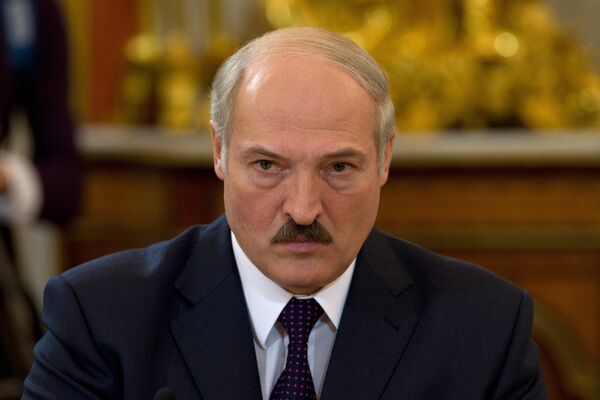Branded “the last dictator in Europe” by the US, Lukashenko is perhaps the most defiant political remnant of the Soviet Union. From a poor background in a rural district of Belarus, Lukashenko rose to become a collective farm manager in the Soviet era, and then made a transition to politics at the end of the 1980s.
He is more favorably known as “batka” or “father” by many of his own people and in the local media.
He showed his colors as soon as the USSR began to collapse, when as a member of the Belarusian parliament he declared support for the hard-line coup against the Soviet President Mikhail Gorbachev in 1991. He was the only deputy of the Belarusian parliament who voted against the agreement to scrap the USSR and set up the CIS in its place in that year.
Lukashenko swept to power in 1994 on an “anti-Mafia” ticket, pledging firm state control of the economy and security, which had a powerful appeal to a people who had witnessed the ravages of shock therapy in neighboring Russia.
He made no secret of his authoritarian tendencies, reveling in showing off his strong arm handling of the state, where the KGB – still proudly flaunting its Soviet-era title – strangled any sign of dissent.
He famously praised Hitler as a model for the benefits of strong leadership, “as Germany was raised from the ruins thanks to firm authority, and not everything connected with that well-known figure Hitler was bad” – a remarkable statement in a country where a third of the population died in World War Two.
In 1996 he disbanded parliament after it tried to impeach him, and then strengthened control over the judiciary. Belarus became a presidential republic.
He ignored criticism from abroad, and indeed seemed to enjoy it, branding opposition at home and overseas as threats to the nation.
Having almost completed two terms by 2004, Lukashenko again sought reelection, having first changed the constitution to scrap the nation’s two-term limit, following a referendum.
Foreign policy under Lukashenko has mirrored his often eccentric and prickly style. Reliant on Russia for political support, cheap energy and market for Belarusian products, he sought close ties with Moscow, and even kept up a slow evolution to a “union-state”. However, keen to maintain his undiminished authority, he resented any intrusion by Moscow in the local economy and fell out with the Russian government over rising gas prices and oil export duties. Relations fell to a low in 2010 over his failure to tow Moscow’s line on recognition of South Ossetia and Abkhazia.
A thaw in relations seems to have taken place earlier this December when Lukashenko signed up to a common economic space with Russia and Kazakhstan.
Relations with Europe and the US remain problematic, due to criticism of his harsh regime and perceived lack of democracy. Ever aware of an opportunity to play off his powerful neighbors, Lukashenko recently courted Europe briefly in an attempt to extract concessions from Moscow, his last ally.
Ever defiant, he seems set to remain at the helm in Belarus as long as he is reluctantly tolerated by Russia and almost unopposed at home.


